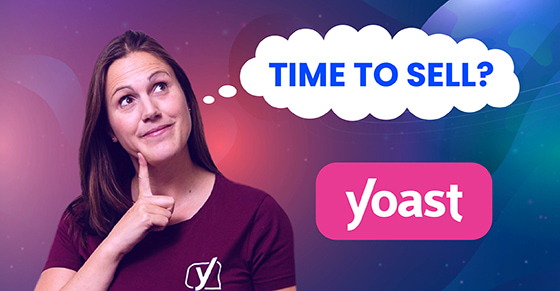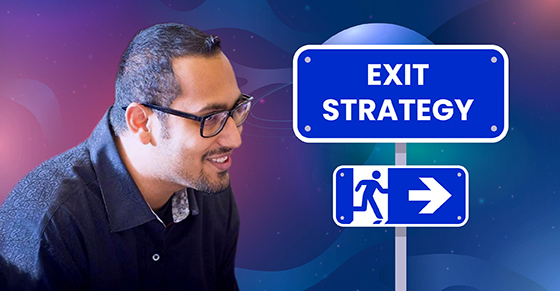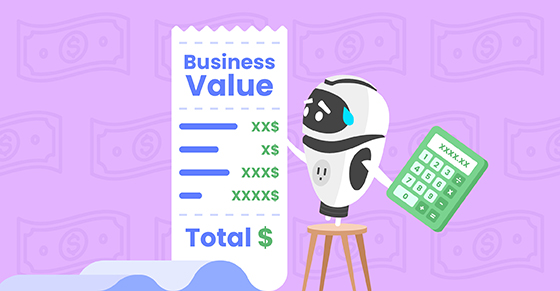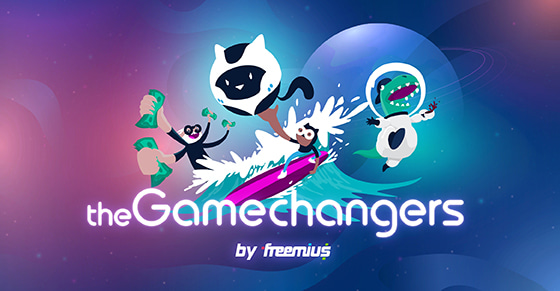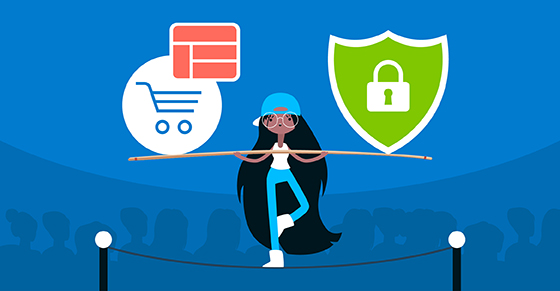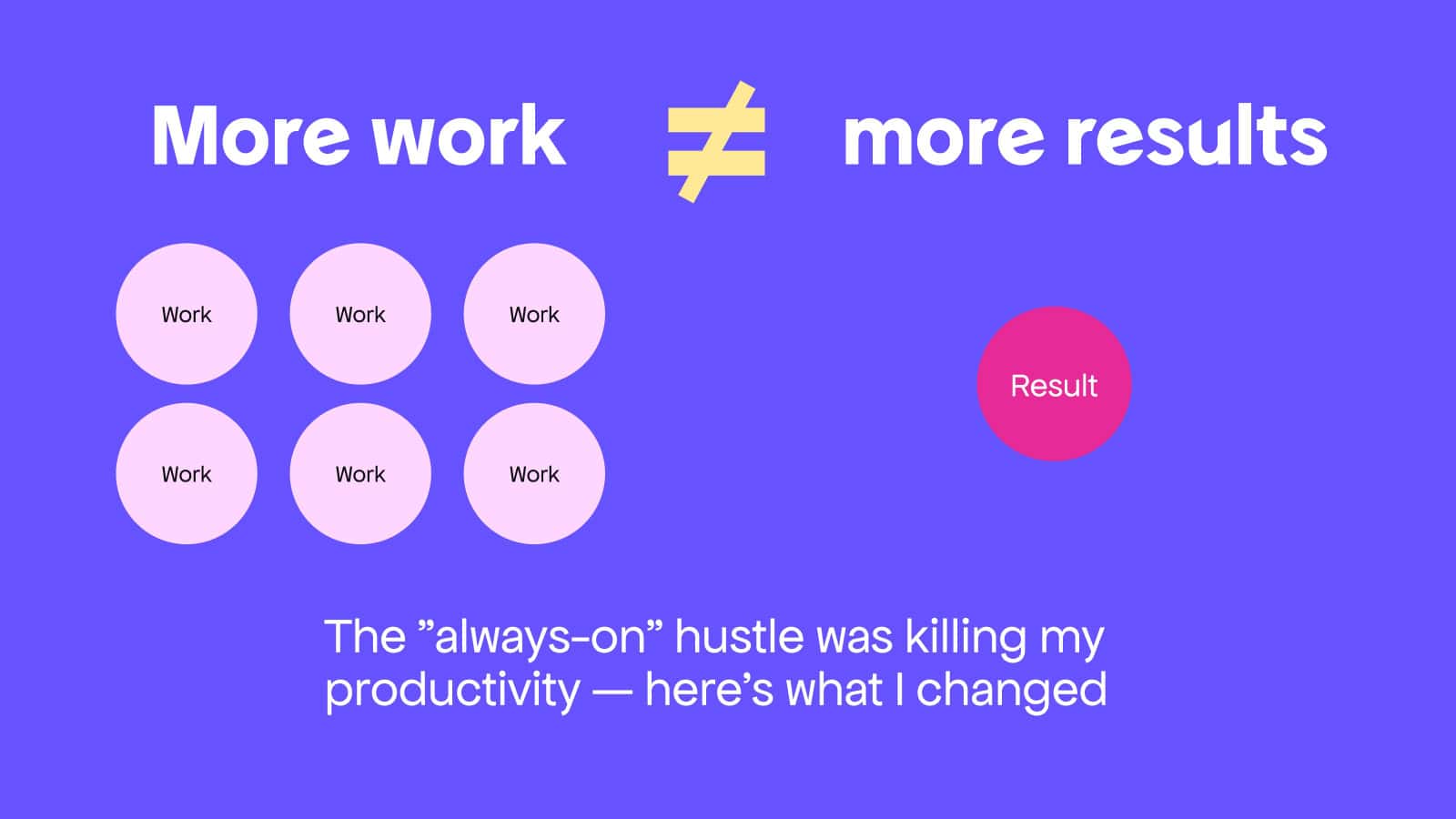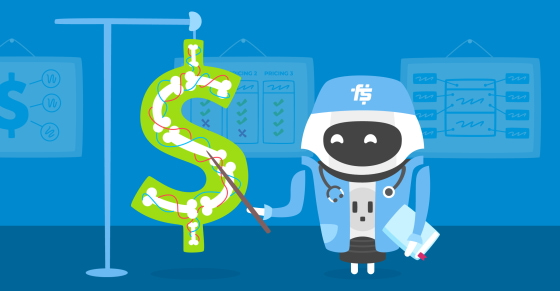|
|
At the end of 2020, then-Yoast CEO Marieke van de Rakt and her husband Joost de Valk (Yoast’s Founder and Chief Product Officer) had reached a crossroads. Though they’d created one of the most successful WordPress plugins ever and operated a flourishing company together, they weren’t happy in their roles. Running a company the size of Yoast was a major responsibility that ultimately held them back from what they wanted to do: Develop the product, execute ideas outside of Yoast, and — most importantly — spend more time with their children. These motivations eventually led to the Yoast acquisition.
But selling the company was off the table, even if it meant forgoing a high-paying deal. The integrity of Yoast in the WordPress community and loyalty to their employees was too important to them. In this article compiled from Episode 2 of The GameChangers video series, we speak to Marieke to find out what happens when you put staff livelihoods, culture, and the integrity of a company first.
Why Was Yoast Put Up for Sale?
As one of the most successful WordPress plugins ever, Yoast has fielded its fair share of inquiries from interested parties over the years.
“We did have conversations in the past where people came to us and told us that they are interested in buying Yoast or investing in it,” says Marieke. “Around Christmas of 2020, Joost and I both decided that we wanted to either get some funding or sell Yoast entirely. And I think that decision was largely due to a crazy COVID year that exhausted us because of the unstable dollar exchange rate at the time (we sell in dollars, but our expenses are all in euros).
“We felt like we were getting too big without any money behind us because we were totally bootstrapped,” continues Marieke. That said, she admits that the decision was also based on creative frustration. “As awful as it sounds, Joost was a bit bored. He has so many ideas that he wants to explore. However, when you’re responsible for a company as large as Yoast, you can’t just step out. I think even after the Yoast acquisition we still feel like we can’t step out from the company entirely, but we do want to do things beyond it.”
Neither of us enjoys HR or the finance part of running a business. So at the end of 2020, we decided, okay, we’re going to sell.
The First Step of Preparing for the Yoast Acquisition
When Marieke and Joost decided that they were going to sell, they got in touch with the Royal Bank of Canada, which has experience with acquisitions in the IT world.
They also made sure that all of Yoast’s stakeholders — across the board — agreed with the decision. “It didn’t come as a huge surprise to our shareholders since we had had those conversations before. Luckily, they were all on board and excited for us. We also have a works council that we weren’t required to include in our plans, but we did so anyway and made sure that they were aware of what we were doing. We also informed our management team.
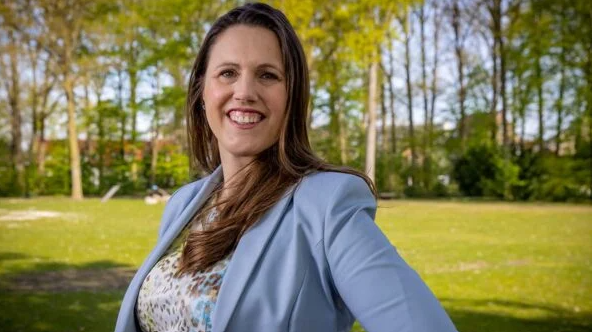
After bringing all interested and affected parties up to speed, their bank helped them build a business case to present to interested people/businesses on why they should buy Yoast.
“The document is known as a confidential information memorandum. They have all kinds of weird terms, those bank people. A confidential information memorandum is a big presentation document with all kinds of information about your company. It makes a business case on how people could grow a company. With Yoast, for instance, it showed how we could grow if we had funding or more strategic partnerships.”
Although talks began in April, it took about three months to compile the financial model and the confidential information memorandum. Throughout the Yoast acquisition process, Marieke was involved every step of the way and in every conversation, while Joost took charge of most of the financials.
Managing an Exit as a First-Time Seller

Marieke isn’t a financial expert, nor is she particularly interested in finance as a hobby — she has a background in product and marketing (two interests that have since informed her career path).
Being fully aware of her lack of financial expertise, Marieke surrounded herself with supportive specialists to help guide her through the exit process.
“My brother sold his first company ten years ago. He’s not in the WordPress world but he is in the startup scene, so he gave a lot of advice.”
If you have someone in your near environment that went through an acquisition process, that can help you, even if they sold a small company. They can tell you what kind of things will come at you — because a lot of things will come at you.
“After my brother sold the company, he had to stay and work there for a year, maybe longer. And he didn’t particularly like the new owner. I don’t think he disliked him personally, but there wasn’t that kind of chemistry. So he was very much aware of the different types of after-sales constructions, such as making sure that the amount of money you get upfront is enough. I was aware of this because I saw how it drained my brother to keep working somewhere he didn’t want to, just for the money. You shouldn’t have to do that.”
For the Yoast acquisition, we ended up with a construction without any earn-outs, which is really awesome and good for us.
Preparing Financial Models Before an Exit
Luckily, Marieke and Joost had a fantastic CFO who helped them navigate the financials of one of the biggest WordPress acquisitions. “He only worked for us for two days a week, but he really helped us.” She adds that if you know of someone good with finances and you’re looking to sell, get them on board.
Getting Help With the Legal Stuff
“We also had a legal team, which was important,” Marieke says. “Much of this work was done between the board members. All five of us had some involvement. So that’s Thijs (Yoast’s new CEO), Chaya, Omar, Joost, and me. And then our CFO — Stein — and our legal counsel, were really important.”
And we hired a lawyer — also external — to take care of the negotiations because you get these, well, endlessly long pieces of contracts and stuff. You don’t want to do that alone.
Calculating the Worth of Yoast
“So, we didn’t really do that,” she continues. “That’s something our bankers really took care of. And of course, they talked through it with us. So what we did is we made a financial model of what we make now and how that would change if we altered something. We had many things that we were planning that could impact sales in the future.
“The bankers always talk about multiples. In startups, a multiple is a multiple of your revenue and not of your profits.”
In other words, an estimate of what your revenue could be.
“And I think we never talked about money in our conversations, which is pretty awesome because you can just talk about the work. And then behind the scenes, they would have conversations about how much money it would be and they would leave that very implicit. And then at one point, people were asked to do a bid because we had multiple people that were interested. So I think we had six offers from people that wanted to buy Yoast.
Suddenly, there were six different amounts of money, which were all similar actually. And of course, if you are doing a process with multiple buyers, that does something with the price and the speed of the process, because people will feel like, oh, more people want to buy.
Interestingly, Yoast didn’t have an asking price when it set out to find a buyer.
“It was not for sale like a house with an asking price,” says Marieke. “I think the bankers made that implicit. They made a list of comparable exits of other companies.
“Bankers know everything,” Marieke jokes. “I don’t know how they know everything, but they always know how much money this deal and that deal was.”
[Bankers] just know how much money other plugins have made. And that makes it easier to see, oh, this is a good bid, or it isn’t.
Marieke and her team didn’t have a minimum amount in mind, either.
“We didn’t negotiate because after the bids were in, we saw that some parties were just not a good fit, so that’s really important. There were differences, especially in structure. We were going to make a lot of money either way so we thought if it’s a little bit more or less than another bid, that wasn’t going to be a deal-breaker for us. What mattered was what the buyer was planning to do with Yoast. We wanted to have a fair bid, but also to make sure that it was a good fit for our company and for WordPress and something that we would enjoy staying on for.”
In his article for The Gamechangers, Syed Balkhi strongly recommended writing down why you’re looking to exit your business. And the key to Marieke’s success is that she and her team had a super clear vision of what direction they’d want Yoast to take after the exit, and had non-negotiables in place before selecting which buyer to sell to.
Marieke’s Number One Dealbreaker for the Yoast Acquisition
For Yoast as a company, the product is most important, but for me, the employer, Yoast’s employees were the most important.
“We had one buyer who said, you have too many people on your payroll. We have to cut back. Well, I just immediately jumped off the Zoom call because that was no good for me.
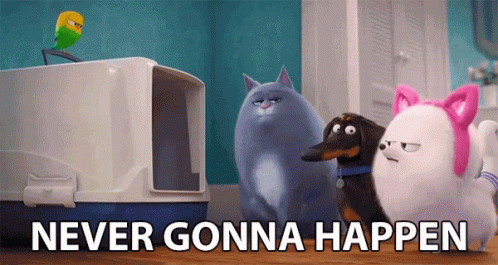
“I wanted to keep everyone on board and I wanted to make sure that everyone would either stay on the same level or grow in terms of financial compensation.”
Marieke explains that Yoast has always maintained a strong company culture, even during COVID when the team was working from home. She was adamant that this should not change and considered it a far bigger deal-breaker than the amount of money a potential buyer was willing to offer. How you treat employees is going to affect both their professional and personal lives. When you have 140 people working for you, you need to account for the well-being of 140 families too.
It is worth mentioning that while Marieke didn’t compromise on any of her non-negotiables, she did express flexibility in terms of pricing. Because they were making a lot of money from the exit either way, she had the freedom to take a humane approach that benefitted her team and set an admirable example for the community as a whole.
Interestingly, Marieke and her team weren’t necessarily against an earn-out structure.
“It depended on what the earn-out structure would look like,” Marieke clarifies. “Joost and I were both excited to keep working at Yoast. We live close to the office and a lot of our friends and family also work there. I wanted to stay on board, only in a slightly different role. So staying wasn’t necessarily the issue, but running the company in a structure that was mainly based on profits would change the way we were used to doing things, and that wouldn’t have felt good to me.”
For Marieke, her biggest concern was what would be good for Yoast and the people who worked there. And, of course, what would benefit the WordPress ecosystem.
I think we would have had a hard time selling to a buyer that wasn’t invested in WordPress. So, that would have been a deal-breaker as well. There are companies out there that are direct competitors. If a potential buyer was planning to pull the Yoast SEO plugin from the repository on WordPress once they had bought us, that would be a dealbreaker too.
While these non-negotiables are no doubt harder for small businesses to leverage, a company of Yoast’s magnitude was certainly in the position to ensure its critical conditions were met.
Finding Potential Buyers
So, how did Yoast go about looking for a new owner?
“Our banker got us potential buyers,” Marieke says. “The banker knows everybody. They start talking and then you do talks with all kinds of companies and with private equity parties. They’re not names that you would know because they’re not in the WordPress world. And the banker just says you have to do an initial bid before the end of a certain date, and they’d do the first bid, and then we’d talk again. And at the end, the bidder that was most interested in us and which we felt most comfortable with was Newfold Digital, who ended up buying us.
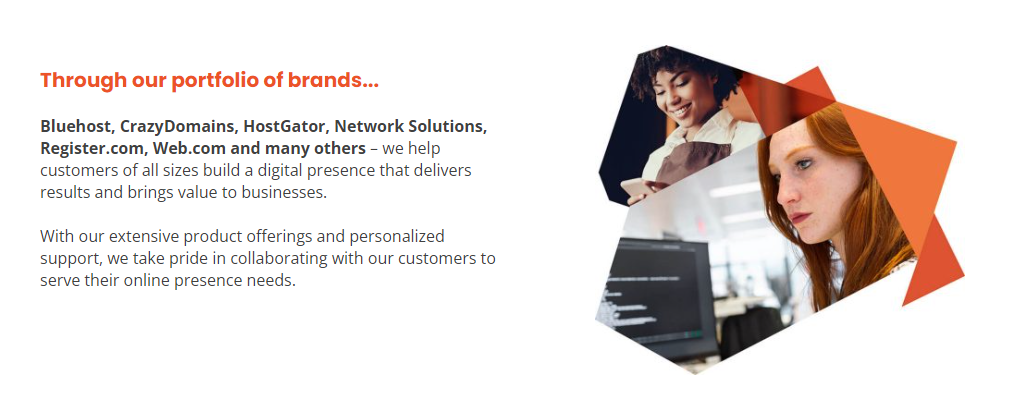
Yoast’s leadership team contacted an array of potential buyers, many of whom responded that they would not be putting in an offer. This was not due to them having a dislike or no confidence in Yoast. As is the case with business, they were usually in the process of negotiating another deal, or the timing just wasn’t right for them.
Selling to Newfold Digital
“The main reason people know of Newfold Digital is because of the Endurance Group,” Marieke elaborates. “I think about a year ago, the Endurance Group and Web.com — which isn’t a WordPress-based platform — got together and formed Newfold Digital. We were confident that they intended to make a strong impact in the WordPress community. They wanted us because of our WordPress core team, and because of our work effort. So I think that for us, that was the best reason for someone to buy our company.”
They didn’t have the highest bid, but they had a good bid with good conditions for us. And I particularly liked the fact that their leadership team consisted of five women and three men. In the boardrooms in this world, it’s pretty much a male-dominated situation. So that made them stand out as well. I think they’re really nice people.
Newfold Digital’s size also meant that Yoast’s leadership team had the freedom and resources to focus on what mattered most to them: to run the company they founded and to take charge of their product’s vision.
Has this power shift impacted the lay of the land at Yoast in any way? Not really, barring the fact that the company had to switch from Microsoft to Google as their office suite.
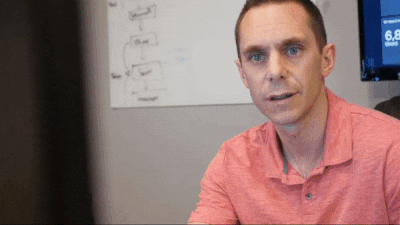
“So long old friend”
How the Yoast Acquisition Impacted Company Culture
Marieke says that except for the challenge of switching to Microsoft, not much has changed in terms of company culture. “It’s just the same. I think it will change if we decide to leave, but both Joost and I are pretty keen on staying, albeit in a different role. Neither of us wants to do the management thing anymore. We just want to do product-to-marketing. And so there’s a lot of room for that.”
And did the Yoast acquisition process have any impact on the day-to-day at the company?
“I think in the end it did because we were so focused on that and it’s hard to focus on other projects as well. So I think we were able to get some nice features out, but if we didn’t have this process, we probably would have done more. It’s just that you only have 24 hours in a day and you’re focusing on so many things. So I think it’s a good thing that our process wasn’t too long.”
Working at Yoast During and After the Acquisition
Marieke says that during the Yoast acquisition process, the candle was often burning at both ends.
“A lot of the people that we talked to were not in the Netherlands, but in the United States, so we ended up having all those conversations in the evenings while running Yoast during the day. For three or four months, my life was nothing else but Yoast. It was a really intense process. It took a lot out of us in terms of getting tired and getting stressed, but it was also a nice process because if you’re selling your company, you want to sell it in the best way possible.”
So, it makes you take a step back and look at what you’ve built and see all the beautiful things that are in your company. I think it was really inspiring as well, and gave us a lot of ideas on how to grow further.
Was Yoast’s company culture distributed before the attention-grabbing WordPress acquisition and how does it fit into Newfold Digital now?
“Before Covid, we were a company with offices in a small town in the Netherlands, but we also had a support team that was distributed because it makes sense to have people in all time zones. Nowadays we still have an office, but it’s in and out of lockdowns.
“People are working from home again because of Covid. So we’re going to go hybrid. We took on more people that don’t work in the Netherlands during Covid because it just made sense in that period. I still think we are company-based, so we have a lot of parties and drinks together and we have lunch together and all these things will remain.”
Marieke states that Yoast is not a hierarchical company and has always had a flat structure — this is still the case post-acquisition. However, she does appreciate that Newfold Digital has around 7,000 employees and that there’s still room for Yoast’s original employees to potentially become Newfolders. For now, this transition hasn’t really taken place, but that’s not to say the companies are at all segregated — Yoast holds regular open team meetings which Newfold Digital’s members can attend for updates on what’s happening at the company.
Although communication with Newfold Digital is largely virtual, Marieke says that three members of their leadership team — as well as their CEO — visited Yoast after the acquisition. “And they went and had drinks with the entire company. I think the leadership team is really kind, warm people that fit beautifully within our company.”
Marieke’s Future at Yoast
Marieke goes on to reiterate that she will still be staying on at Yoast, although not in a full-time capacity. “We made a lot of money and we live in a small town. We’re planning to see whether or not we can invest and help local entrepreneurs set up a startup outside of Amsterdam. In the Netherlands, everyone is in Amsterdam, but we’re an hour away from the city (we’re near the German border). But you can have a startup here on a small site as well. So that’s something that we’re excited about.”
We’re also looking to help other WordPress entrepreneurs with getting those things up. So that’s something that I would love to do along with my job at Yoast.
Marieke says that the Yoast acquisition has also allowed her to fulfill a role that she’s more comfortable with.
“Before the Yoast acquisition, I spoke to my colleagues and said that I don’t necessarily want to be the CEO anymore. Then we decided to shift positions, which gave me a little breathing room, and I’m actually feeling much better now and I’m focusing on the things that I want to do. I felt a lot of pressure being, well, the end boss in all of this. And that doesn’t give me any joy.”
I really enjoy writing and coming up with ideas and thinking about strategies, but not necessarily sitting in board meetings and talking about finances and KPIs.
“That’s just not what I like. And if you have exited, you can choose what you want to do and also do things that you feel are beneficial for the company.”
Managing the Pressures of the Yoast Acquisition With a Family
The acquisition helped Marieke expedite the process of stepping down as CEO and passing it on to her successor.
“I think overall because it’s such an intense process, I felt stressed even right after the acquisition. I also noticed that Newfold Digital is a really, really big company. I’m not used to that because I just like to decide things and do them, but suddenly there are just all these meetings. Thijs, who’s now the CEO, is much better at navigating those things and not feeling frustrated when things take more than a day. He just fits the role, especially in this new organization. And I think I was always planning to leave as CEO — that decision was made a little bit earlier because I just felt that I wasn’t happy in that role.”
She admits that it was difficult to stay sane during the Yoast acquisition process.
“Because it was a short process, it was so very intense — we closed the deal on Tuesday night and the next morning we went on holiday to Disneyland in Paris. We promised our children we would go so we had to, but we also had hardly slept. It was just crazy. When Freemius reached out for this interview, I actually had to think back on what happened.”
Marieke says that for now, it’s important for her to take some time off. “I work at Yoast for three days a week now and two days are for myself and for my family (Joost and I have four children). I want to spend some more time with them. Our oldest is 15. He works with Joost as a support engineer and our youngest is six. So he’s pretty small.”
Marieke says that having a family while running Yoast was a rollercoaster ride, but it was also amazing.
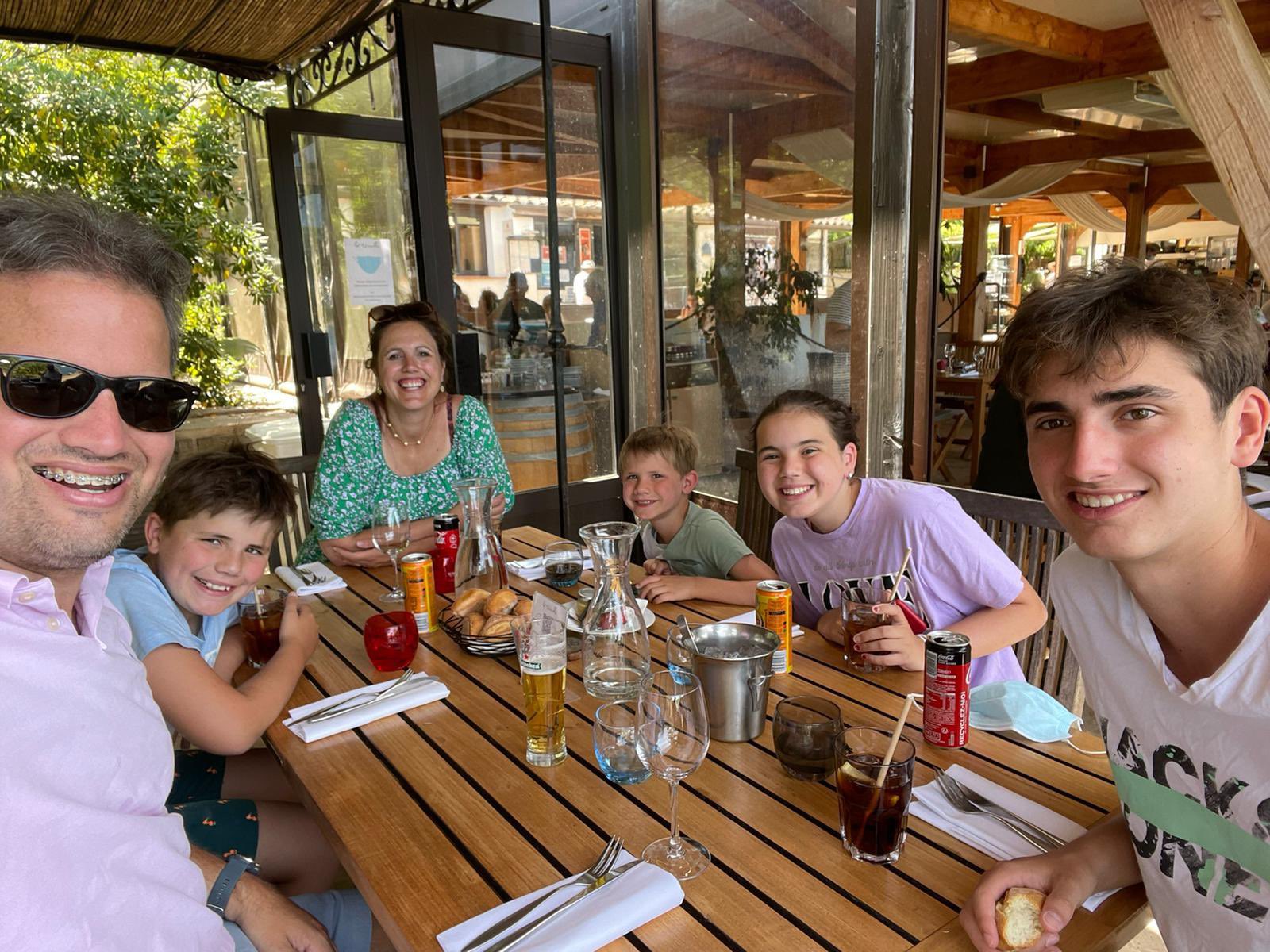
“Joost and I built the company having four children. He started doing WordPress and SEO because I was pregnant with our oldest one, which wasn’t entirely planned but worked out just fine. He needed to find another job and then found a job as an SEO consultant, so he started with SEO and then with WordPress. So we built the company and had four children, which was a lot of work.”
Joost found WordPress because he was looking for new opportunities and Marieke soon followed suit. But with fundamental shifts in the ecosystem, what does the current landscape hold for buyers and sellers who are looking to enter the WordPress space or who already have an established presence?
Grab a free copy of our Cheat Sheet for
Selling Plugins and Themes
A growth roadmap with concise, actionable tips for every milestone of WordPress product development.

The Beneficiaries of WordPress Acquisitions
“I think the WordPress acquisitions market is a seller’s market right now,” says Marieke. “There’s a lot of money in the world, and there are a lot of people that want to invest, so they need to invest in something. So if you have a company in WordPress, which is flourishing, that’s a good thing.”
And her advice to developers looking to get in on the M&A game?
“Because of the magnitude of WordPress, it’s a good place to start as a developer and it’s an easy way to start. The community is so inviting and supportive — if you have a good idea, then people will go out and reach out to you. Some aspects of the business side of WordPress are certainly different from how they were in the past, but it doesn’t mean that there aren’t a lot of opportunities for new developers.”
Marieke’s Top Advice for Exiting
My best piece of advice for people that are considering exiting is if you have a larger company, invest in a banker.
“That’s not cheap because they want a percentage of what you’re making. And if you’re smaller, make sure that you have good people advising you because it’s hard and it’s complicated. And all these people are nice, but unfortunately, you can’t sell your company to people just because they are nice. I learned that. So, make sure that you have people who will advise you and that are on your side during the entire process.”
If you enjoyed Marieke’s insights and advice, be sure to look out for future articles for The Gamechangers. If you’re after more M&A deep-dives from WordPress’s business veterans and visionaries, check out the video series here.

